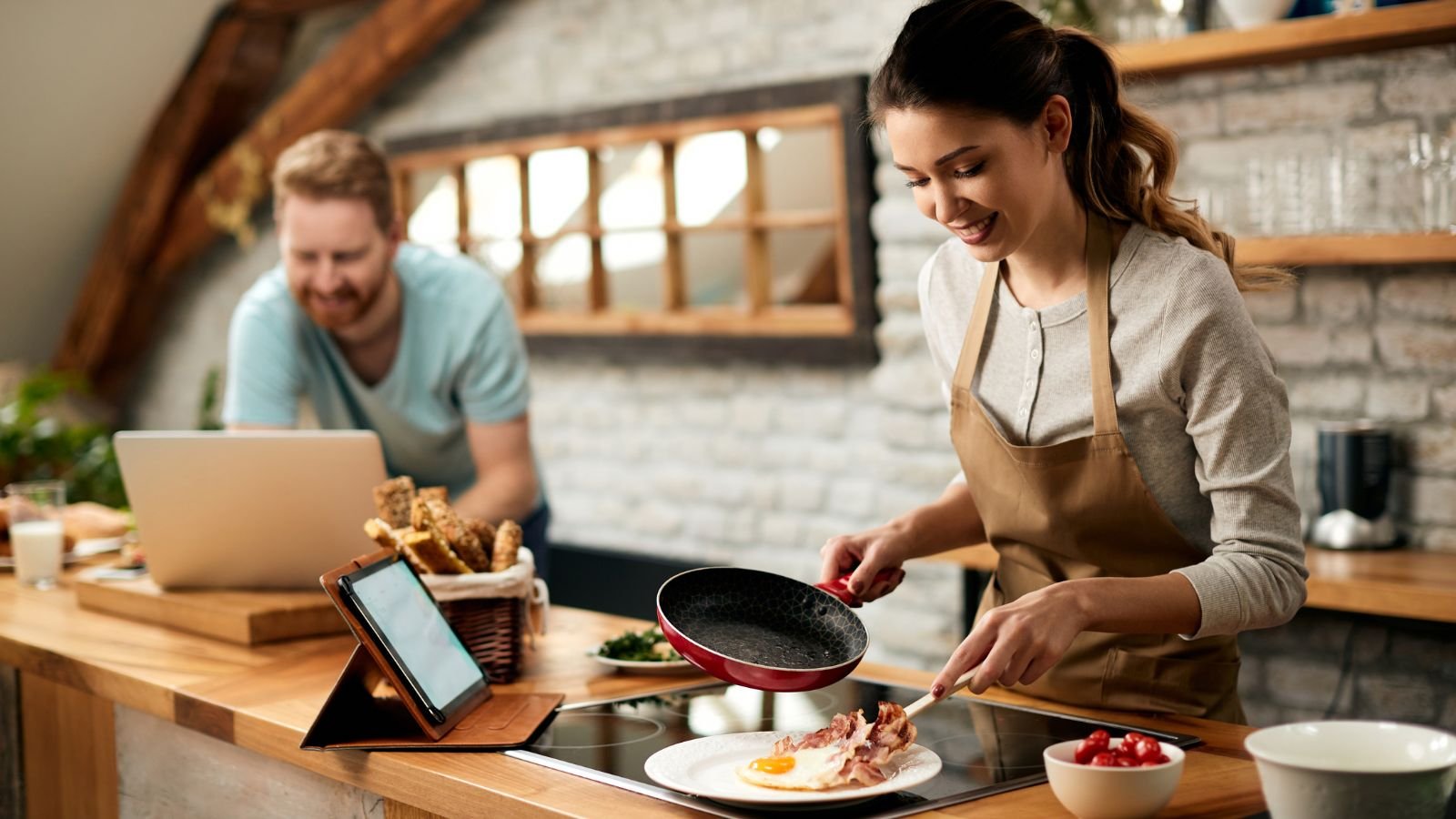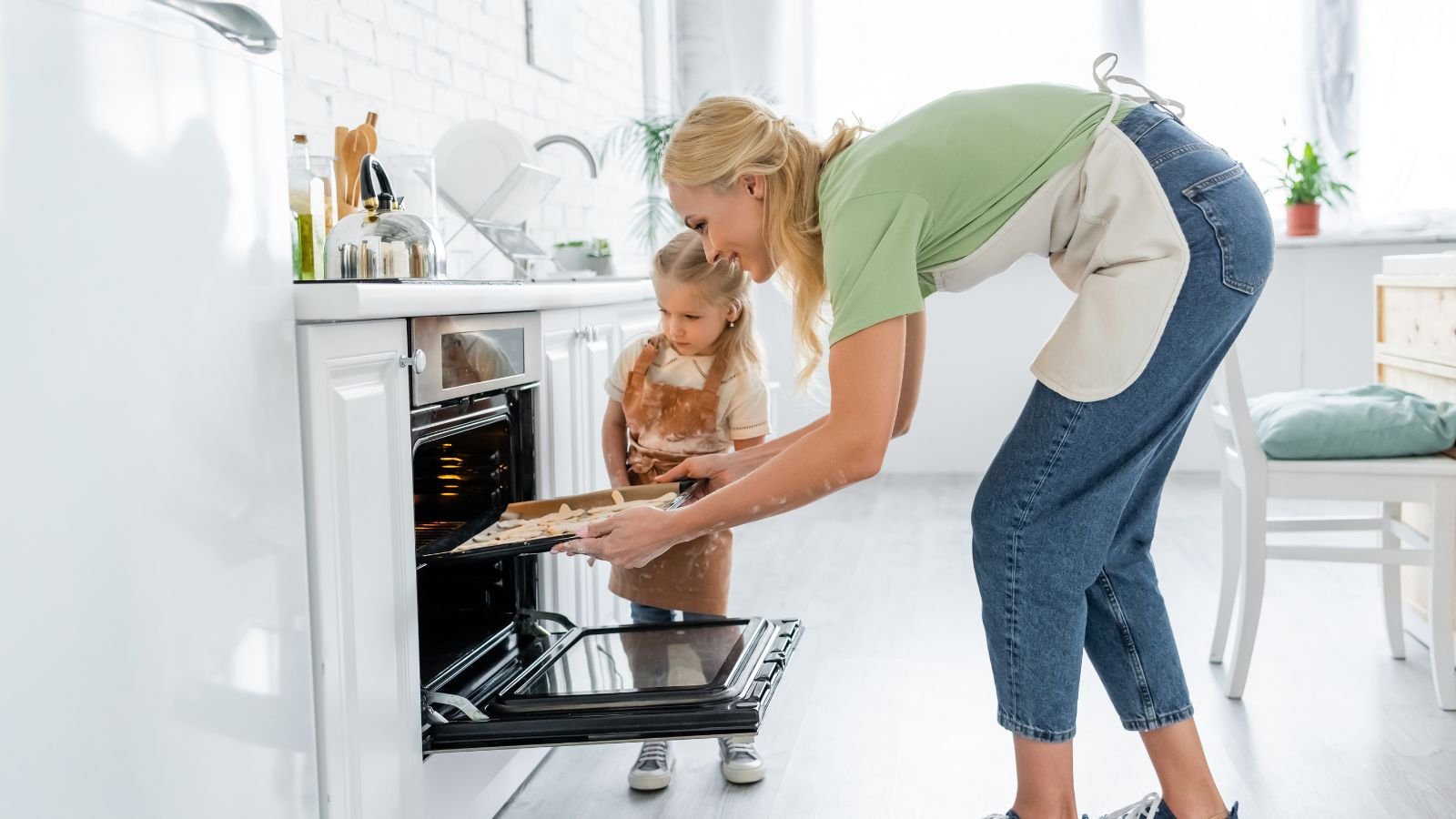Eggs have been a staple in everyday cooking in the United States. In 2023, egg consumption was estimated at 281.3 per American. While eggs are one of the most affordable and easily accessible sources of nutrition, they can do more harm than good if cooked incorrectly.
Let’s take a look at unhealthy ways you should avoid preparing eggs:
Deep Frying

The consumption of deep-fried foods exposes you to health risks such as heart failure, type 2 diabetes, and obesity. Just because our eggs are healthy doesn’t mean they are not susceptible to the dangers of deep frying. According to registered dieticians, cooking eggs in butter, oil, or bacon grease adds significant calories and unhealthy fats to the dish.
Using reused oil to fry eggs has more adverse health impacts. Research states that reusing fried oil increases the content of harmful compounds such as acrylamide, peroxides, and trans fat in the oil.
Baking

Eggs are vital in baked treats such as cakes, muffins, casseroles, custards, pies, and quiches. However, baking is a high-temperature cooking method with its drawbacks. It forms acrylamide, which can harm human health if consumed at high levels. The FDA recommends cooking casseroles and other dishes containing eggs at 160° F to destroy Salmonella, a food poisoning-causing bacteria.
Moreover, most baked recipes use refined flour, sugar, butter, and other unhealthy ingredients. These ingredients overpower the benefits of eggs, and prolonged heating can reduce their nutritional composition.
Scrambling

While eating scrambled eggs is not unwholesome per se, using excess high-fat oil, butter, cheese, or cream can pose health issues. These ingredients increase eggs’ overall calories, cholesterol, and fat content.
Dieticians recommend using healthy cooking oils such as olive or avocado oil and an oil spray to reduce calories. Swapping cheesy scrambled eggs for healthy egg alternatives, vegetables, and whole grains is also a good idea.
The FDA advises ensuring that scrambled eggs do not turn out runny. Undercooked or soft-cooked eggs can lead to foodborne illnesses such as fever, stomach cramps, and diarrhea from Salmonella bacteria.
Cooking with Processed Meats

Cooking eggs with processed meats such as sausages, beef jerky, bacon, hot dogs, deli meats, and cold cuts is a significant health danger. Processed meats contain high concentrations of salt and chemical preservatives to increase their shelf life. According to the FDA, diets high in sodium are linked to the risk of developing high blood pressure. Food preservatives also have undesirable effects on your gut microbiome.
A recent study shows that a low intake of processed meats can lower health risks such as mortality, type 2 diabetes, colorectal cancers, and cardiovascular disease. Hence, it is advisable to avoid pairing your eggs with processed meats.
Deviled Eggs

Boiled eggs topped with spices, seasonings, and sauces are trendy appetizers in American cuisine. They are partly healthy because they contain hard-boiled eggs as a base. However, the fat and calories in the toppings can be the real culprits in lowering the health benefits of the eggs.
Substitute mayo with low-fat Greek yogurt and fresh herbs in the yolk mixture for a healthy twist.
Microwaved Eggs

Microwaving the eggs is better than deep frying or baking because it uses less oil. However, it is a high-temperature method, and eggs continue to cook from inside even after being removed from the microwave. The entire process can lead to nutritional loss.
Cooking eggs with their shells directly in the microwave also poses a safety hazard. The shells can gather steam and explode. The American Egg Board recommends breaking the eggs out of their shells and pricking the yolk of unbeaten eggs to allow the steam to escape safely.
Over Boiling

Boiling is a safe and healthy method for making soft-boiled or hard-boiled eggs. However, to prevent the loss of nutrients, it is best to avoid overcooking. Turn the heat down as soon as the water comes to a boil. Then, cook for 5-8 minutes, depending on the firmness of the yolk you want.
If you allow the eggs to boil at a high flame, the shells can crack, and egg whites or yolks can ooze into the water, making everything messy.
